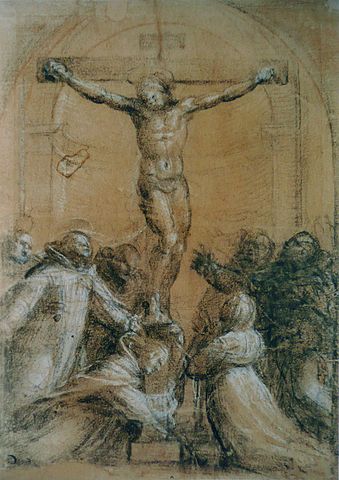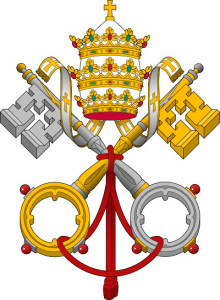An reverent, attentive altar server has an important impact on the Mass. The altar server’s reverence helps the whole congregation be more reverent.
Yet another great video from Gabriel Castillo, of TrueFaith.tv:
An reverent, attentive altar server has an important impact on the Mass. The altar server’s reverence helps the whole congregation be more reverent.
Yet another great video from Gabriel Castillo, of TrueFaith.tv:
In America, we are conditioned to vote with our dollars. The classical economic concept of Adam Smith‘s “invisible hand” is deeply engrained in American society, with the concomitant “consumer sovereignty” mentality. However, redirecting our tithes and offerings away from the local parish or diocese is theft, and even heretical, according to Catholic doctrine. Continue reading Withholding Tithes from the Church is Heretical

The Order of Preachers was founded by St. Dominic in 1216. Within a few years, the order had organized itself into three branches: the friars, the nuns, and the laity. Each branch of the Order is separately governed under the leadership of the Master of the Order. The branch of the laity are called the “Lay Fraternities of St. Dominic,” “Lay Dominicans,” or formerly the “Third Order of Preachers.” The Lay Dominicans worldwide number approximately 150,000, compared to around than 6,000 Friars.
Pope Paul VI’s apostolic exhortation, Evangelii Nuntiandi (Evangelism in the Modern World) written 10 years after the close of Vatican II, refocused the Church on its central mission: the eternal salvation of souls. So important is Evangelii Nuntiandi that Pope Francis calls it “the greatest pastoral document that has ever been written to this day.” Address of June 23, 2013, at 2.
Continue reading Evangelism, the Laity and the Order of Preachers
Jesus Christ is God Himself (John 1:1, Colossians 2:9), incarnate in the human person (John 1:14). Through him, all things were made (John 1:3).

Jesus personally founded one Church , which is his one Body (Romans 12:5, 1 Corinthians 12:12). He directed his Church to “[g]o and make disciples of all nations, baptizing them in the name of the Father, and of the Son, and of the Holy Spirit, and teaching them to obey all that [he] commanded.” Matthew 28:19-20.
Jesus built his Church on the rock of Simon Peter (Matthew 16:18) and on the foundation of the apostles and prophets (Ephesians 2:20). Jesus promised that he would be with his Church until the end of time (Matthew 28:20) and that the gates of hell would never prevail against his Church (Matthew 16:18).
If Jesus was telling the truth, his Church cannot ever fail (because that would imply his absence) or be extinguished (because that would imply that hell had prevailed). Jesus cannot lie, because he is God (cf. Titus 1:2). Consequently, the one Church that Jesus personally founded must be in continuous, visible operation, in direct, unbroken succession from the original apostles, with the seat of Peter being primary.
Continue reading Why I believe in the Catholic Church